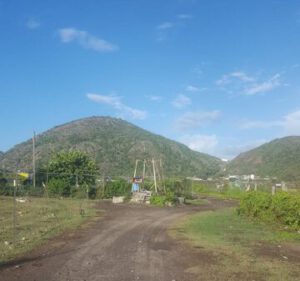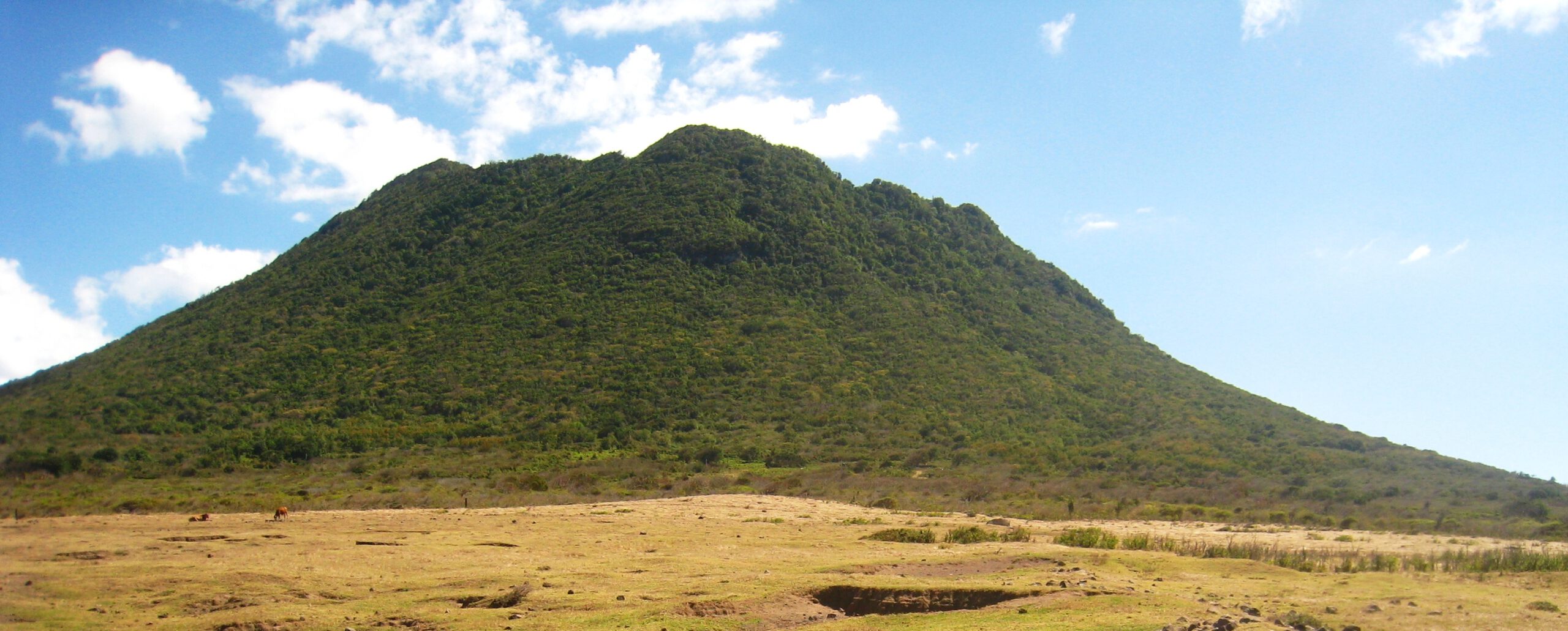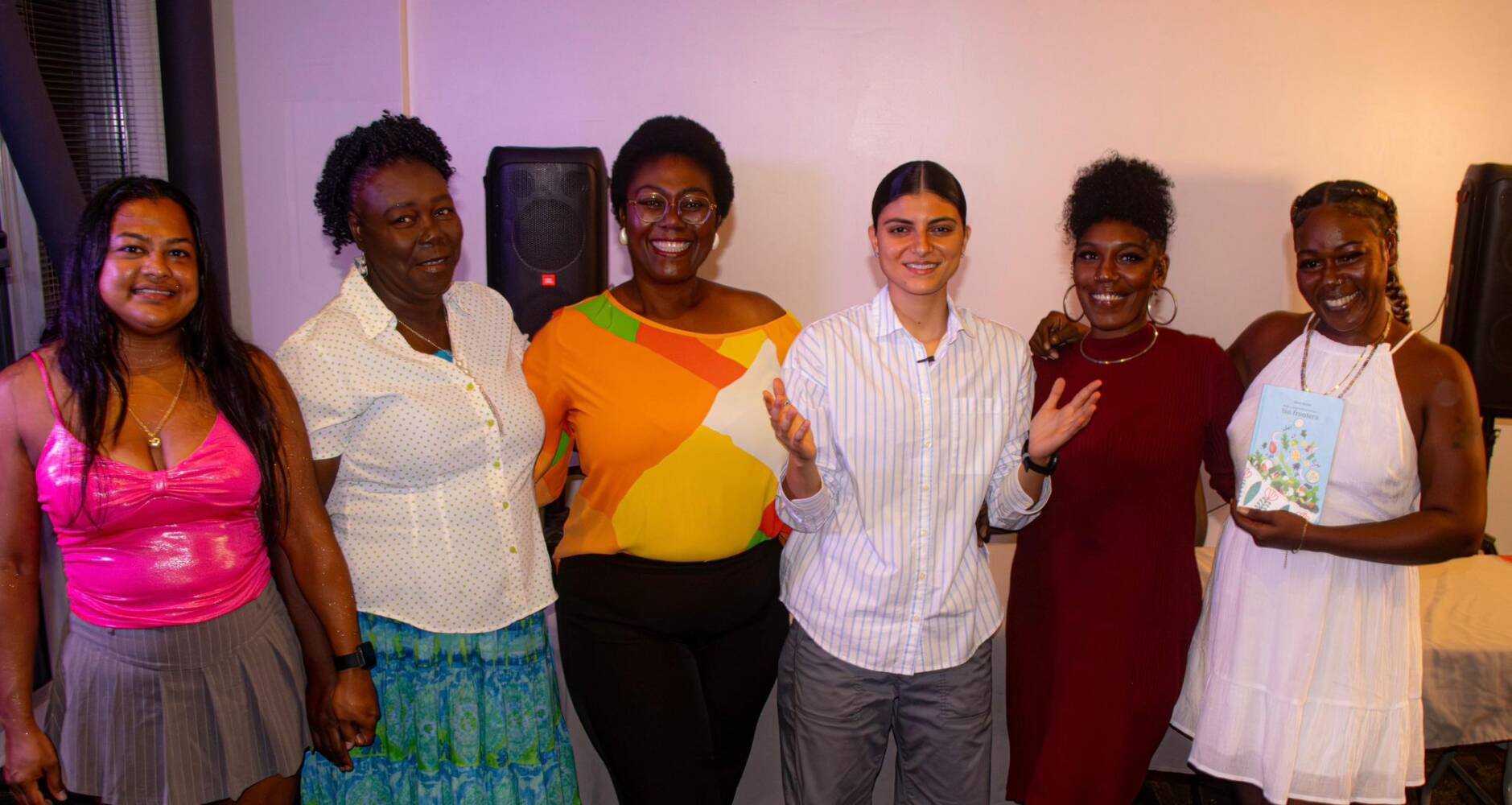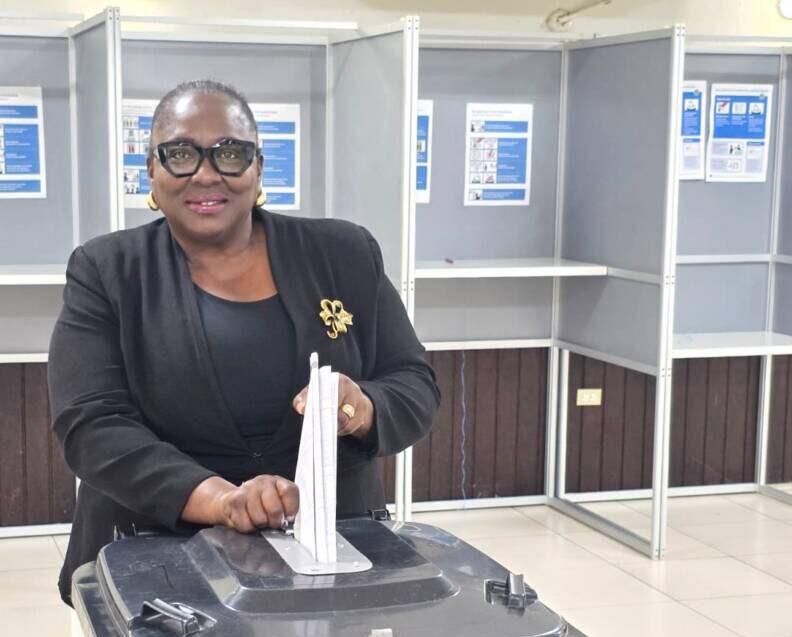ORANJESTAD – The supply of drinking water on Statia is often rationed. This was the reason for hotel owner Claudia Wickert and her husband Bob Castelijn to explore other options. With the help of a Dutch drilling company, they found underground ‘veins’ in December; rain water which flows from the volcanic crater to the sea.
“There’s usually only one company that provides a certain product or service. If you’re not happy with the service provided, you can’t switch companies. This is me showing them that we’re fed up”, says Wickert.
Together with her husband, Wickert has been living on Statia for ten years, and runs the Orange Bay Hotel. “Within the hospitality industry you need water 24/7.”
Statians depend for their fresh water on the St. Eustatius Utility Company. They have a water plant but ration the supplies regularly due to burst pipes, a failing pump, or when the supply is running low. Wickert; “We have water for three hours in the morning, and three hours in the evening, for days or weeks on end.” However nearly every house has a cistern to collect rain water.
‘We have water for three hours in the morning, and three hours in the evening, for days or weeks on end’
– hotel owner Claudia Wickert
The idea is to drill wells and pump up the rain water out of the veins. The question remains whether or not it will remain a private enterprise or that it will become a solution for the entire island; they’re waiting on a decision on financial support from the Netherlands. Wickert: “I hope that we can tackle this together.”

Spring next to the fire station on Statia
‘Even the fire department has declared that they do not have enough water to combat fires during three quarters of the year”, says Lou Thijssen from the drilling company. The preparations have taken nearly a year because they needed permission from the government. They currently have a few interested parties who wish to participate, including the fire department.
Test holes
Thijssen searched for veins of water last week with the help of a dowser he’s worked with for years. He has also drilled several test holes in the past. The requirements for the water are high: it has to be fresh water, cold, and not laced with phosphates or nitrates from the volcano. “Unfiltered water can be used by the fire department and for agriculture; inhabitants and hotels will most likely need a filter.”
He doesn’t want to share the locations and the number of veins just yet. ‘I’ll be making a break-even calculation for each site. The financing has to come through first, after that we’ll share the coordinates.’ The first functioning wells could be up and running within three to four months.
‘Water has been an issue for a long time’
– Bas Roorda, who reports to Parliament on this issue
Bas Roorda, former head of Finance on Sint Maarten, is committed to the project on behalf of the Netherlands. He reports to Parliament about the situation on Statia.
“Water has been an issue for a long time: it’s not clean, the pressure isn’t right, and the supply isn’t reliable. The Dutch government is responsible for public health and public safety. That means clean drinking water and plenty of water for fighting fires.”
Roorda hopes that the Hague will agree to provide funds for a drilling rig.








